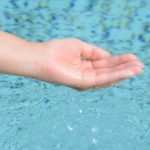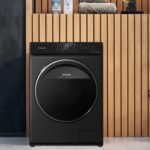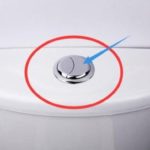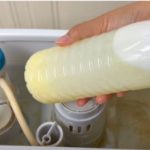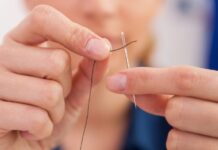Water, just like electricity, is a resource that you should try to conserve as much as possible. Especially during the hot summer days, water usage tends to increase, leading to higher water bills. On top of that, water shortages are common during this season, which may result in your home experiencing water supply interruptions. So, don’t hesitate to read this article to learn how to save water and reduce your water bills.
1 Simple Water Bill Calculation
For households in Ho Chi Minh City, the following water tariffs are applied:
- For a quota of 4m3/person/month, the price per cubic meter is VND 6,700.
- For a quota of 4m3 – 6m3/person/month, the price per cubic meter is VND 12,900.
- For a quota exceeding 6m3/person/month, the price per cubic meter is VND 14,400.
For households in Hanoi, water tariffs are based on four levels of consumption:
- For the first 10m3 of household water consumption, the price per cubic meter is VND 5,973.
- For water consumption from 10m3 to 20m3, the price per cubic meter is VND 7,052.
- For water consumption from 20m3 to 30m3, the price per cubic meter is VND 8,669.
- For water consumption exceeding 30m3, the price per cubic meter is VND 15,929.
For reference: March 22: Origin, Meaning and Theme
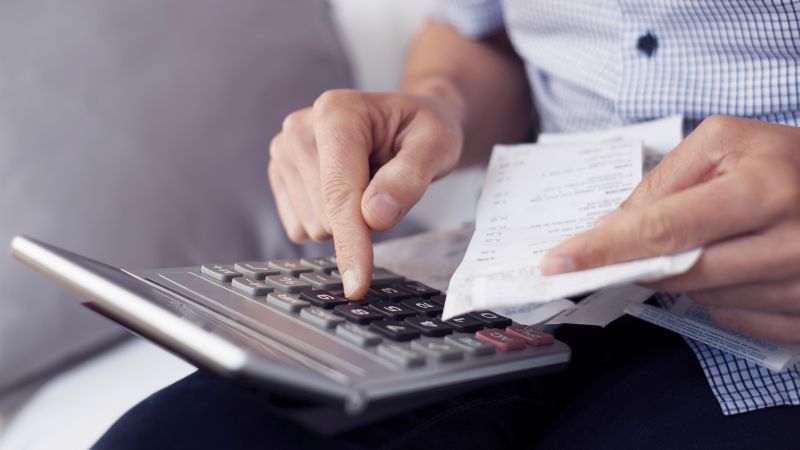 Simple Water Bill Calculation
Simple Water Bill Calculation
The calculation of water bills for households in Hanoi depends on the category and consumption level, with prices varying accordingly and calculated using an exponential formula.
For example: For a household consuming approximately 35m3 of water per month as measured by the water meter, the water bill is calculated as follows:
- Tier 1 = Price of clean water for the first 10m3 (VND 5,973/m3) x 10
- Tier 2 = Price of clean water from 10m3 to 20m3 (VND 7,052/m3) x 10
- Tier 3 = Price of clean water from 20m3 to 30m3 (VND 8,669/m3) x 10
- Tier 4 = Price of clean water from 30m3 onwards (VND 15,929/m3) x 5
The monthly water bill for this household will be equal to: Tier 1 + Tier 2 + Tier 3 + Tier 4
Note: The above prices exclude the 5% value-added tax and the 10% environmental protection tax. Therefore, when calculating the water bill, you must add 15% to the total bill amount.
For reference: Simple and Easy-to-Follow Guide
2 11 Effective and Simple Water-Saving Methods
Replace Regular Faucets with Spray Faucets
One of the simplest and most effective methods is to use water-saving faucets. Especially for showerheads and faucets in the bathroom and kitchen, consider installing spray faucets.
This type of faucet works by dividing the water flow into numerous tiny streams so that the water can spread evenly over the surface when bathing, handwashing, or cleaning utensils without using as much water as conventional faucets.
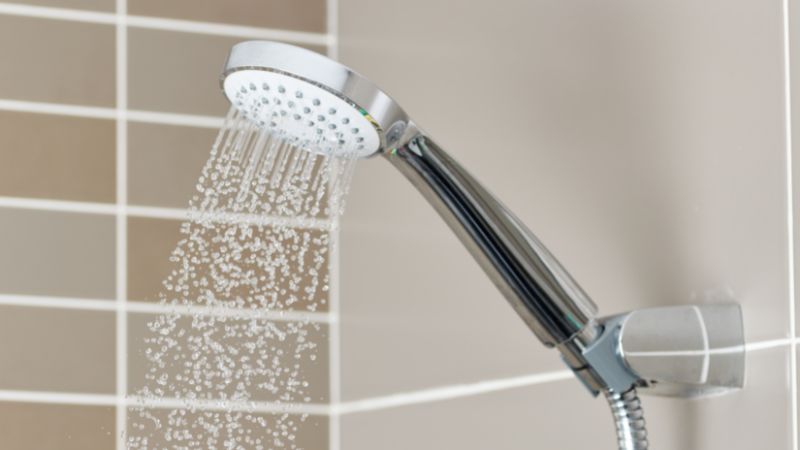 Replace Regular Faucets with Spray Faucets
Replace Regular Faucets with Spray Faucets
Avoid Taking Baths or Long Showers
You don’t actually need a lot of water to clean your body thoroughly. So, don’t fill up the bathtub or take long showers just because it’s hot outside. Additionally, showering for too long can cause itching and rashes.
You can use your bathtub periodically, about every two to three days, to relax and unwind while still conserving water.
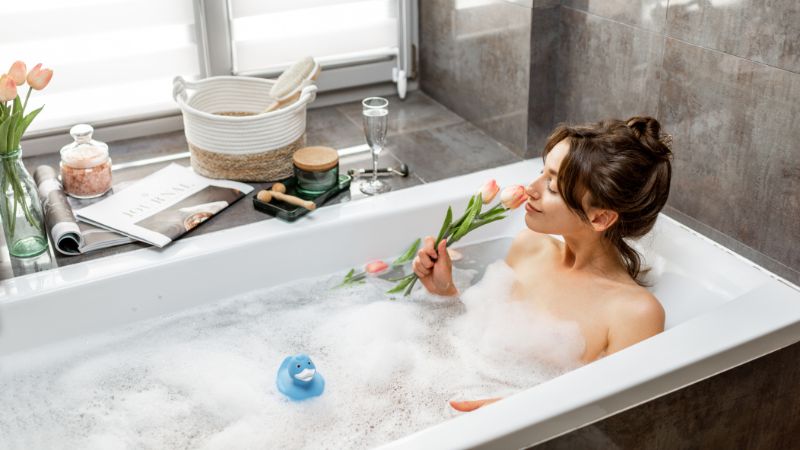 Avoid Taking Baths or Long Showers
Avoid Taking Baths or Long Showers
Use the Light Flush When Using the Toilet
For “light” visits to the toilet, a small amount of water is sufficient for cleaning. Therefore, modern toilets typically have two flush settings – light and strong – to help you save water.
If your toilet doesn’t have this feature, place a plastic bottle filled with water inside the tank to reduce the amount of water used per flush.
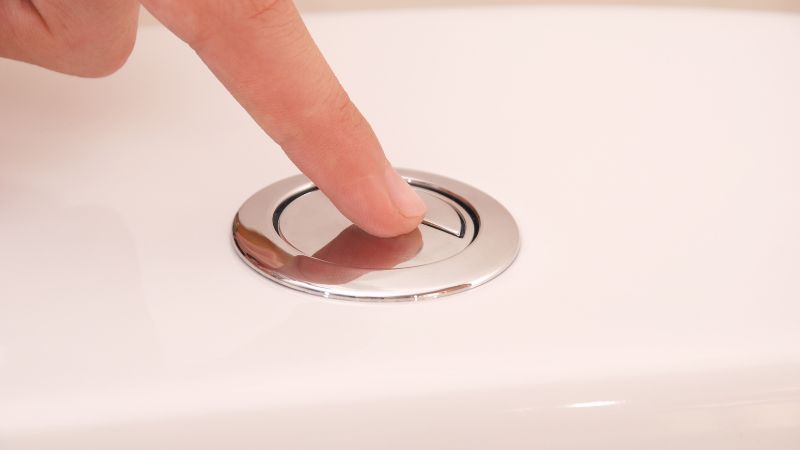 Use the Light Flush When Using the Toilet
Use the Light Flush When Using the Toilet
Use the Toilet Sensibly
Don’t use the toilet indiscriminately. In particular, gentlemen, refrain from flushing cigarette butts down the toilet. Each time you do this, you waste about 9 liters of clean water, which is extremely wasteful. Use the toilet only when necessary.
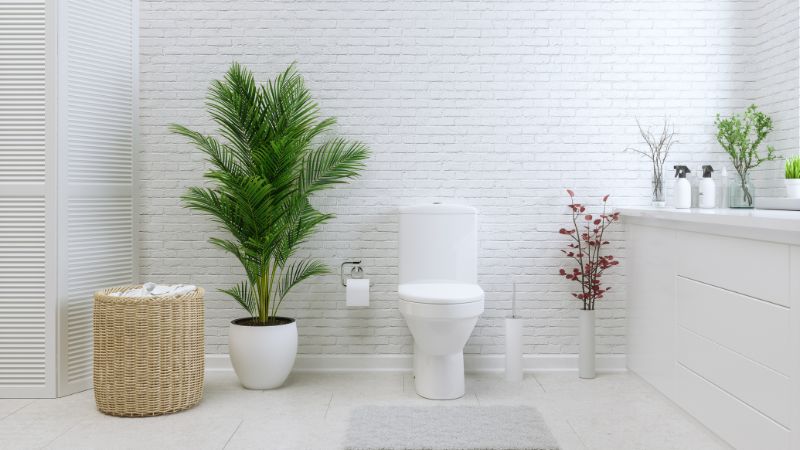 Use the Toilet Sensibly
Use the Toilet Sensibly
Use the Shower Sensibly
The shower is another fixture that consumes a lot of water, and many people tend to use it incorrectly. Avoid turning on the shower before you start bathing or while soaping and scrubbing, as each time you turn on the shower, you use about 20-30 liters of water.
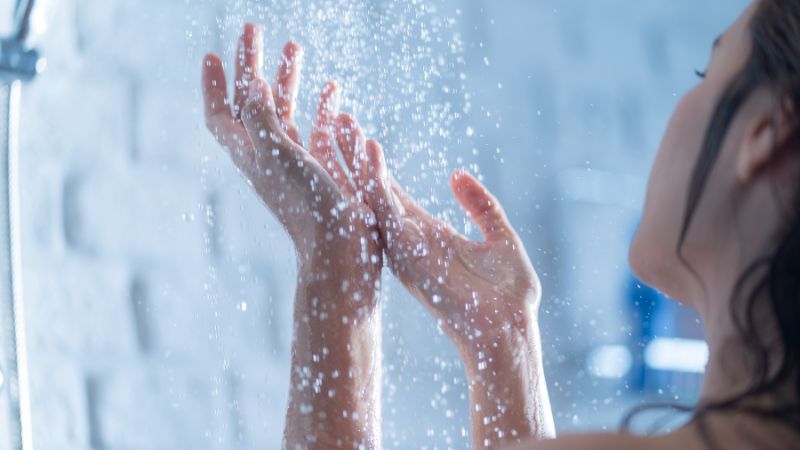 Use the Shower Sensibly
Use the Shower Sensibly
Insulate the Water Pipes
By using a sponge to insulate the water pipes, you can get hot water faster and avoid wasting water while waiting for it to heat up.
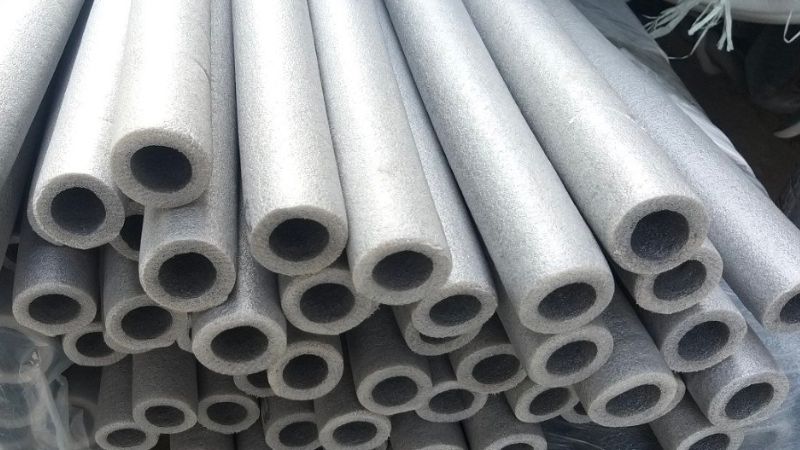 Insulate the Water Pipes
Insulate the Water Pipes
Wait Until You Have Enough Laundry
Washing a small load of laundry is not only inefficient but also wasteful. To optimize the efficiency of your washing machine and water usage, only wash a full load of laundry. If you have a large family or young children, investing in a large-capacity washing machine is essential.
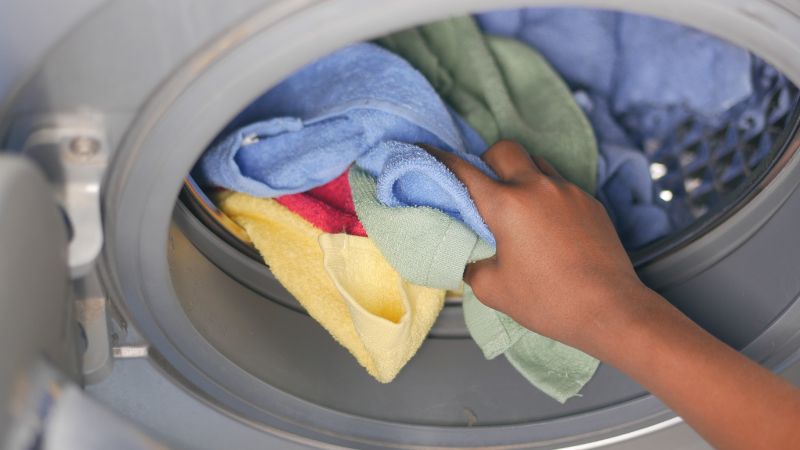 Wait Until You Have Enough Laundry
Wait Until You Have Enough Laundry
Don’t Wash Dishes Under Running Water
Instead of letting the faucet run while you wash each dish, fill the sink with water, then turn off the faucet and start washing. Afterward, you can clean the sink and continue washing.
With this method, you can save between 50 and 250 liters of water per day while also saving time.
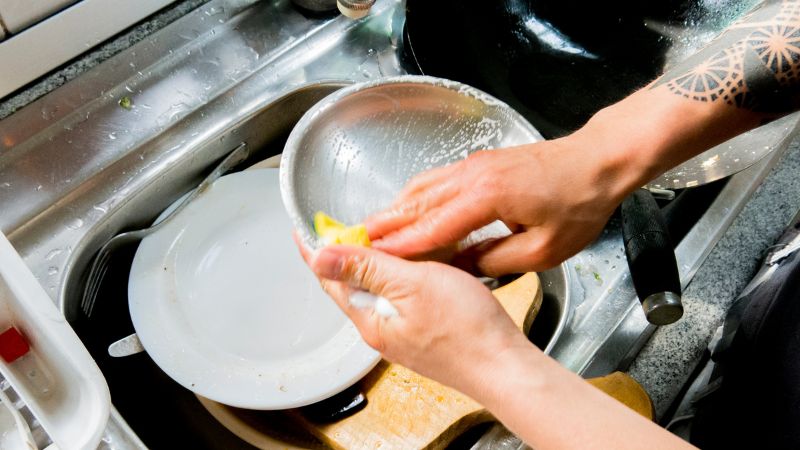 Don’t Wash Dishes Under Running Water
Don’t Wash Dishes Under Running Water
Turn Off the Faucet When You Have Enough Water
Many people have the habit of letting the water run while brushing their teeth, shaving, washing their faces, or even cooking, even after they’ve finished rinsing their produce. Break this habit and turn off the faucet when you no longer need it.
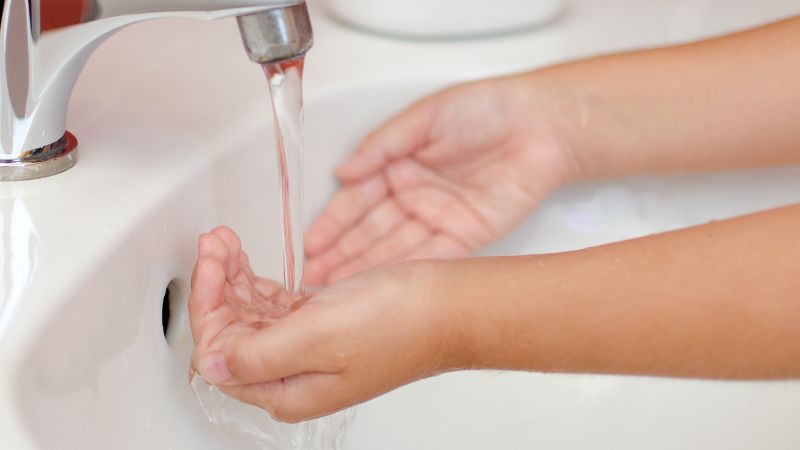 Turn Off the Faucet When You Have Enough Water
Turn Off the Faucet When You Have Enough Water
Inspect the Water System for Leaks
A leaking pipe somewhere in your home can increase your water bill, even if you’re generally careful about water usage. Pay attention to regularly inspect the water pipes, water tank, kitchen faucet, bathroom, and toilet to promptly fix any leaks.
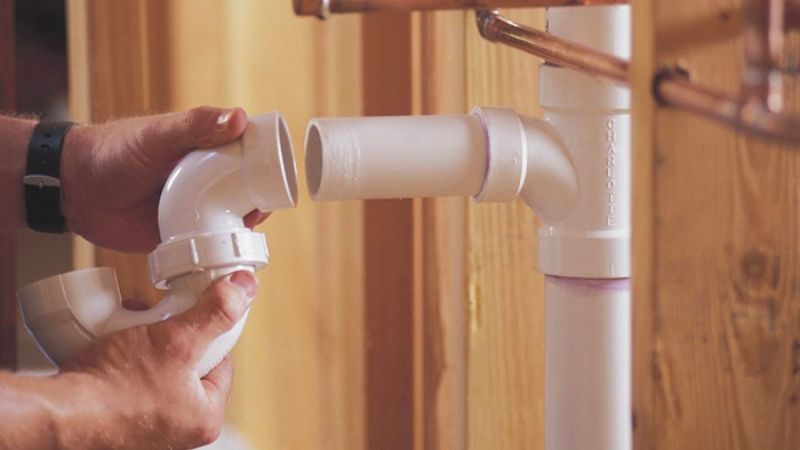 Inspect the Water System for Leaks
Inspect the Water System for Leaks
Reuse Water Whenever Possible
Try to reuse water for other purposes whenever possible, such as watering plants or cooking. For example, what can you do with the water used to boil vegetables? You can either make soup or use it to water your plants without causing any harm.
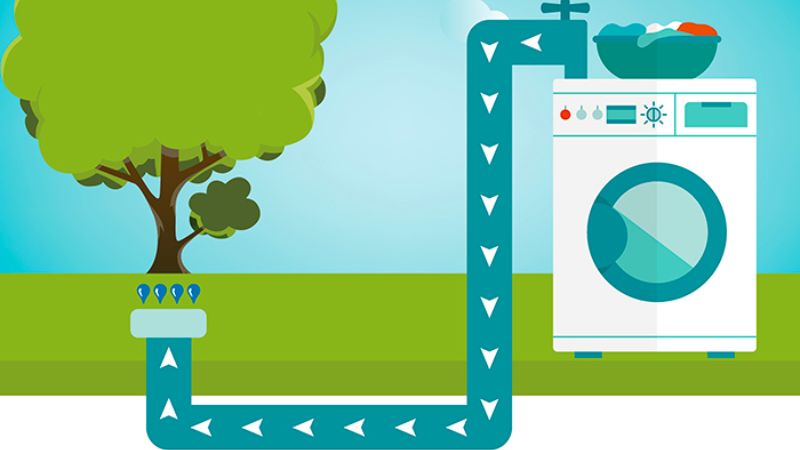 Reuse Water Whenever Possible
Reuse Water Whenever Possible
These are just a few methods to help you save water more effectively and reduce your household expenses. Hopefully, these tips will help your family manage your monthly bills more efficiently.

























